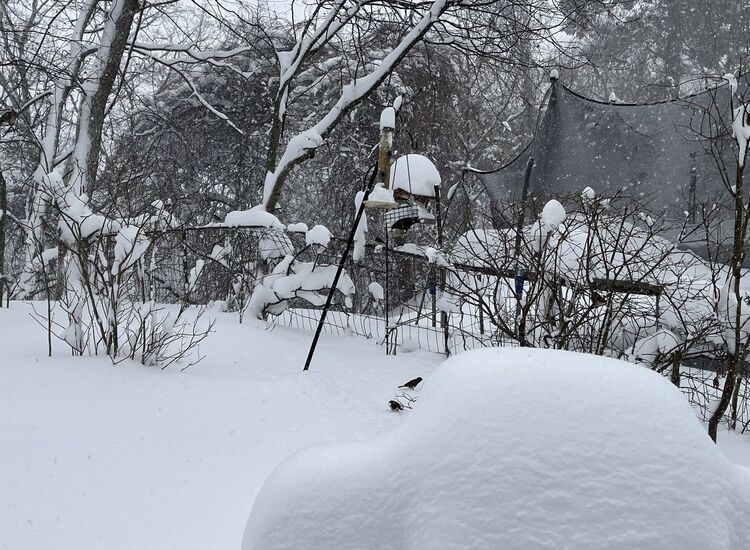Published in the Oct. 3, 2012, edition of the Irish Echo.
Theatre / By Orla O'Sullivan
Not alone death, but death announcements specifically, featured heavily in this year’s 1st Irish Theater Festival, a month-long event that concluded Sunday.
Things we would rather not acknowledge; how we present to the world; secrets: this, the stuff of drama, was present at many points in the fifth annual festival.
Marie Jones’ “Fly Me to the Moon,” reviewed in the Sept. 19 issue, even managed to roll such themes together in a comedy where someone dies on the toilet.
However, life’s sordid underbelly got more dramatically satisfying consideration in fledgling shows that made brief appearances in the final week of the festival than in its headline events. Last week was devoted to new plays, described as “more than workshops” but inviting audience collaboration to refine the productions--this from a Q&A with writers and directors at the end of the week.
“Brendan,” one of this Next Generation series, lacked the polish of more prominent 1st Irish events, reviewed in the mainstream New York press.
However, “Brendan,” written by Ronan Noone, arguably got you more involved with the characters, mostly thanks to great performances by Dashiell Eaves as Brendan, a recent immigrant to the U.S., and Nancy Walsh, playing his mother, who follows him in spirit. Like an overgrown, malevolent parrot on his shoulder, she constantly reminds Brendan of his ineptitude with women and the failed suicide that drove him from Ireland. The mother is humanized just enough to confuse, dispensing wise counsel and occasional endorsements.
“Brendan” opens, appropriately enough, echoing Camus’s novel “l’Etranger,” the outsider or foreigner, with the news that his mother has died. The entertaining play works towards oddbod Brendan cutting the apron strings that bind him to his overbearing mother.
Brendan: Shut up! You’re dead, you’re bloody dead!
Mother: That’s no way to talk to your mother.
The characters in the other Next Generation play seen are waiting for a death. “House Strictly Private” is a direct reference to funeral arrangements, i.e. no mourners are invited back to the family home after the burial.
The man who took in his brother’s wife and children after his brother died is now on death’s door himself, and the secrets closed in his once iron fist are slipping from his grip. Sexual and physical abuse, infidelity and issues of inheritance, it’s all starting to come out.
Honesty doesn’t come easily to a family bound by shame and paranoia. Family members often quiz each other on what others have been saying, and characters rarely appear opposite each other on stage—a structurally inventive way to convey the lack of open communication.
Yet, these monologues tie so seamlessly together that at one stage I realized I was forgetting to take notes I was so drawn in to the story.
“House Strictly Private,” by Jimmy Kerr, was my favorite of the festival shows seen. It combined a dramatic tale and compelling characters with the performing talent witnessed in other 1st Irish hits: “Fly Me to the Moon” (reviewed in the Sept. 19 issue) “Hard Times,” the musical (Sept. 26), which will be revived in November; and “Silent” (Sept. 19), Pat Kinevane's solo showing, going on to the Odyssey Theatre in LA, from Nov. 23 to Dec. 9.
Four of 10 1st Irish plays this year were in the Next Generation, recently conceived by the organizer Origin Theater Company. Of the other two, “For Love,” written by and starring Laoisa Sexton, sold out, while Bernard McMullan’s “Jimmy Titanic,” which made light of death—aboard the Titanic—was very well received.
“House Strictly Private” was at its best at its darkest. Deirdre (Jo Kinsella) is a girl coming to collect eggs on the family farm. In the gloom and stink of the henhouse, amid a ferocious storm, it seems she witnesses her brother being abused by her uncle. This is only intimated by writing and acting that ominously portray the taking of the hen’s eggs as a violation that parallels the sexual abuse.
“That henhouse,” Deirdre tells us, “was held together with s**** and bailing twine.” By the end of the play, she knows what she knows, and it’s even more than she thought. The henhouse has blown apart.








